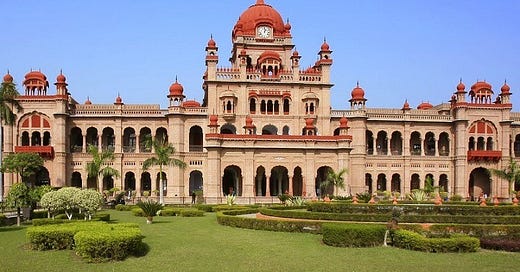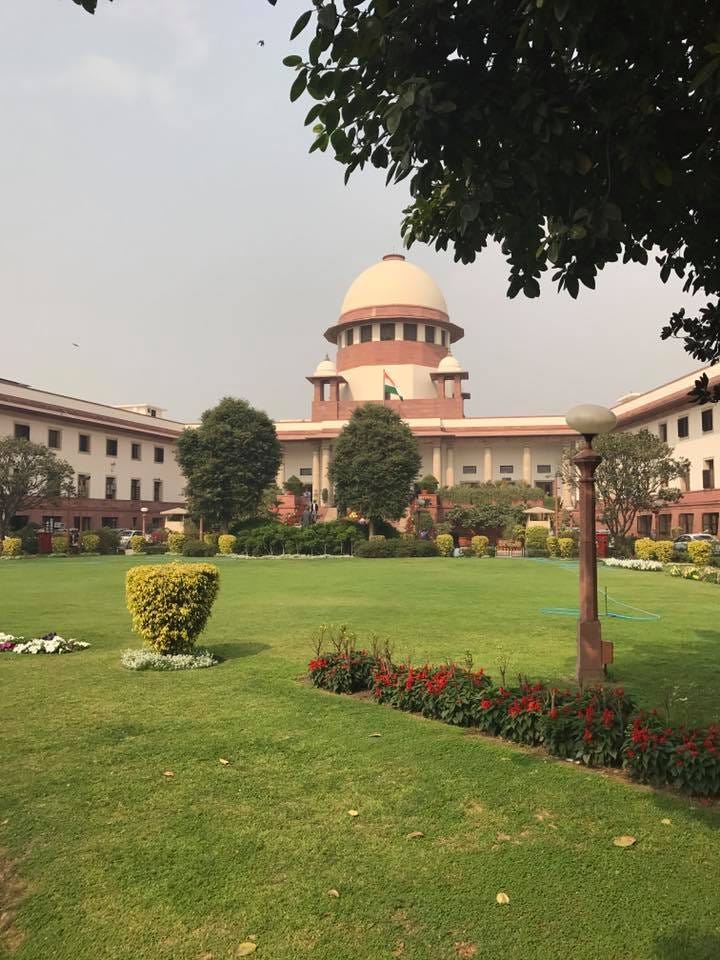Supreme Court Revives Khalsa University in Punjab
Supreme Court Strikes Down Khalsa University (Repeal) Act, 2017 as Discriminatory and Unconstitutional. Sets aside Punjab and Haryana High Court Judgement that had upheld it. Political Implications.
Supreme Court Strikes Down Khalsa University (Repeal) Act, 2017
On October 3, 2024, the Supreme Court of India struck down the Khalsa University (Repeal) Act, 2017, passed by the Punjab Vidhan Sabha, declaring it discriminatory and unconstitutional. The two-judge bench, comprising Justice B.R. Gavai and Justice K.V. Viswanathan, ruled that the act violated Article 14 of the Indian Constitution, which guarantees equality before the law. This landmark 65-page judgement carries significant implications not only for the future of Khalsa University but also for the protection of minority-run educational institutions across India, particularly Sikh institutions in Punjab.
History and Legal Journey of Khalsa University
Khalsa College, established in 1892 in Amritsar, has long been a cornerstone of education in Punjab. In 2016, the Punjab state legislature passed the Khalsa University Act to create Khalsa University under the Punjab Private Universities Policy, 2010. The aim was to enhance access to higher education without depending on any state funding. However, in 2017, the Congress government, led by Captain Amarinder Singh, repealed the act through an ordinance, citing concerns about preserving the heritage of Khalsa College. This repeal was formalized with the Khalsa University (Repeal) Act, 2017, which received the Governor's assent in July 2017.
Legal Challenges
Following the repeal, Khalsa University and the Khalsa College Charitable Society challenged the act in the Punjab and Haryana High Court. They argued that the decision to repeal only Khalsa University, while allowing 15 other private universities to continue, was arbitrary and discriminatory. However, on November 1, 2017, the High Court dismissed their petition, leading to the subsequent appeal in the Supreme Court.
Key Findings of the Judgement
Violation of Article 14: Discriminatory and Arbitrary Action
The Supreme Court concluded that the Khalsa University (Repeal) Act, 2017 was discriminatory as it singled out Khalsa University from among 16 private universities in Punjab. No reasonable classification or justification was provided to explain this differentiation. The lack of sound legislative reasoning made the act arbitrary and in violation of the constitutional guarantee of equality before the law.
Lack of Justification for Repeal
The Punjab Government had cited the need to preserve the heritage of Khalsa College as a reason for the repeal. However, the Supreme Court found that this reasoning was flawed and unsupported by facts. The Apex Court emphasised that Khalsa College, Amritsar which was established in 1892, and Khalsa University, created in 2016, were distinct entities. There was no evidence that the university's establishment would adversely affect the heritage character of Khalsa College, including its iconic building.
Manifest Arbitrariness in Legislation
The Supreme Court criticised the Repeal Act for being "manifestly arbitrary." The ruling noted that any legislation enacted without a rational basis or clear guiding principles violates the principle of fairness enshrined in the Constitution. The decision underscored that arbitrary legislative actions are unconstitutional, even if passed by the majority in the state legislature.
Legal Questions Addressed
Single Entity Legislation: Is it Permissible?
The Apex Court addressed the issue of whether a legislative action could validly target a single institution. It ruled that such actions are permissible only if there is a reasonable classification that aligns with the legislative objectives. In this case, the absence of any material facts or emergent circumstances made the Repeal Act indefensible.
Arbitrariness as Grounds for Unconstitutionality
The judgement reinforced the principle that legislation can be invalidated if it is capricious or irrational, lacking adequate principles for its formulation. This doctrine, commonly referred to as "manifest arbitrariness," serves as a safeguard against unjust laws that fail to meet the standards of fairness and rationality.
Political Context and Minority Rights
Targeting a Minority Institution
The Supreme Court's decision also highlighted the political context in which the Khalsa University (Repeal) Act was passed. The Congress-led government of Captain Amarinder Singh, which succeeded the Shiromani Akali Dal (SAD)-BJP coalition in February 2017, repealed the Act that had established Khalsa University, under the overarching policy for private universities in the state. This move effectively rendered a Sikh minority institution defunct, raising legitimate concerns about the protection of minority rights, including those the Sikhs in Punjab.
In the context of the Supreme Court’s ruling—though it did not address the issue specifically from the perspective of minority rights under the Indian Constitution—it is relevant to contrast this case with other minority institutions like Aligarh Muslim University and St. Stephen's College (a constituent college of Delhi University), which receive substantial central government support and reserve seats for Muslim and Christian students. By striking down the Repeal Act, the court indirectly reaffirmed the constitutional protections granted to minority educational institutions under Articles 29 and 30 of the Constitution, especially when these institutions operate without state funding.
Political Dynamics in Punjab
The judgement also prompts reflection on the broader political dynamics within Punjab. The establishment of Khalsa University by the SAD-BJP government was viewed as a significant step towards enhancing higher education opportunities for the Sikh community without burdening the state exchequer. The Congress government’s swift repeal of this initiative, just months after assuming office, appears to be a political move—blatantly disregarding constitutional provisions and the educational aspirations of the Sikh minority. The Supreme Court’s decision has played a vital role in protecting minority rights from being undermined by narrow, parochial, and potentially divisive political agendas based on flimsy justifications.
Broader Implications for Minority Institutions
Protection Under Articles 29 and 30
The judgement serves as a significant reminder of the protection afforded to minority-run educational institutions in India. Articles 29 and 30 of the Indian Constitution provide linguistic and religious minorities with the right to establish and administer their educational institutions, in addition to the overarching Right to Equality under Article 14, which is available to all citizens. The Supreme Court's ruling has reinforced all these fundamental rights, ensuring that state actions do not unfairly target or discriminate against minority institutions, or any private university, as long as it adheres to the provisions of the law and existing policies.
Autonomy in Educational Policy
The ruling also has broader implications for the autonomy of educational institutions across India, particularly those established by minority groups. The Apex Court made it clear that any attempt to undermine such institutions must be backed by sound legal reasoning and supported by material evidence. This ensures that the political whims of state governments do not interfere with the educational rights especially those of the religious and linguistic minorities.
Rights of Sikh Minority Students: A Crucial Takeaway
This judgement is particularly significant for Sikh minority students, who are often caught in the crosshairs of political manoeuvring in Punjab. The establishment of Khalsa University was seen as a step toward expanding educational opportunities for Sikh students. The Supreme Court's intervention has revived this vision, ensuring that Sikh students will continue to have access to an institution tailored to their educational needs and cultural heritage.
No Impact on Khalsa College’s Heritage
One of the key concerns raised by those advocating for the Repeal Act was the potential harm to the heritage of Khalsa College. However, the court has laid these concerns to rest. It clarified that Khalsa College and Khalsa University are separate entities, and the existence of one does not diminish the other. Khalsa College, with its historical and cultural significance, remains untouched by the establishment of Khalsa University. The Supreme Court's decision ensures that both institutions can coexist, each serving its own unique role in Punjab's educational landscape.
Can Sikhs be Regarded as a Minority in Punjab? —Unresolved Issue
Even the question of whether Sikhs, who form a majority in the state of Punjab, can be considered a minority for the purpose of educational admissions remains unresolved. This issue is particularly complex in the context of institutions run by the Shiromani Gurdwara Parbandhak Committee (SGPC). The Punjab and Haryana High Court, in a 2009 ruling, upheld the right of SGPC-run institutions to provide preferential admission to Sikh students, defining the religious qualifications for eligibility. However, in a subsequent judgement, the same High Court quashed the 50% reservation for Sikh students, effectively removing the preferential treatment. The SGPC challenged this ruling, arguing that Sikhs should be considered a minority for admissions in their own institutions, and the matter eventually reached the Supreme Court. The quota for the Sikh students in the SGPC-run institutions presently continues on the strength of the interim stay order, even as the underlying issue has not been resolved by the Apex Court. The resolution of this legal discourse, though not directly related to the 3rd October judgement of the Supreme Court, will hold significant implications for the educational rights of Sikh students and the broader interpretation of minority rights under the Indian Constitution.
Conclusion: A Landmark Victory for Minority Rights
The Supreme Court’s October 3, 2024 judgement on the Khalsa University (Repeal) Act is a landmark victory for minority rights in India. It not only reinstates Khalsa University but also sets an important legal precedent against arbitrary legislative actions. By reaffirming the constitutional protections provided to minority-run institutions, the the Supreme Court has ensured that Sikh students, and minorities at large, retain the right to shape their educational futures without undue interference from the state. This decision, particularly in the context of Punjab, signifies a victory for educational diversity and the autonomy of minority communities in India.
Epilogue: Our favourite quotes
Based on the Supreme Court’s detailed judgment, here are three quotes that can be taken as scathing criticism of the Punjab Government's repeal act or the order of the Punjab and Haryana High Court order that has now been set aside:
"It can thus be seen that the very foundation that Khalsa University would shadow and damage the character and pristine glory of Khalsa College which has, over a period of time, become a significant icon of Khalsa heritage is on a non-existent basis."
"It can thus clearly be seen that the Khalsa University has specifically averred that it has been singled out by the State Government amongst 16 Universities. It has also been averred that there is absolutely no reason or justification whereby the Khalsa University could be ordered to be shut down in such a discriminatory manner."
"We therefore find that the Impugned Act singled out the Khalsa University (appellant No.1) amongst 16 private Universities in the State and no reasonable classification has been pointed out to discriminate the Khalsa University (appellant No.1) against the other private Universities. The Impugned Act therefore would be discriminatory and violative of Article 14 of the Constitution."
These quotes highlight the Supreme Court's criticism of the lack of justification for singling out Khalsa University, the non-existent basis for the repeal act's reasoning, and the discriminatory nature of the Captain Amarinder Singh-led Congress government's decision.






Supreme Court decision is a SLAP on CM Amrinder Singh's Face.
ਧੰਨਵਾਦ ਹੈ ਸੁਪਰੀਮ ਕੋਰਟ ਦਾ ਜਿਸ ਨੇ ਸਿੱਖਾਂ ਦੇ ਵਡਮੁੱਲੇ ਖਜ਼ਾਨੇ ਨੂੰ ਬਚਾ ਲਿਆ ਨਹੀਂ ਤਾਂ ਸਰਮਾਏਦਾਰੀ ਅਤੇ ਰਾਜਨੀਤਕ ਤਾਕਤ ਦੀ ਭੇਟ ਚੜ੍ਹ ਗਿਆ ਸੀ